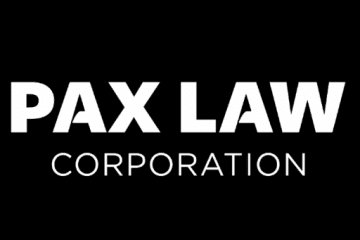Commercial real estate transactions in British Columbia present lucrative opportunities, but they also come with their fair share of complexities. Whether you’re an investor, developer, landlord, or tenant, understanding the potential legal challenges can help mitigate risks and ensure a smoother process. Below, we explore the most common legal hurdles in BC commercial real estate transactions and offer insights on how to address them.
Table of contents
1. Title and Ownership Issues
One of the first steps in a commercial real estate transaction is verifying ownership. Problems such as unclear title, unresolved liens, or encumbrances can delay or derail deals. In some cases, properties may have easements or restrictive covenants that limit their use.
How to Address: Conduct thorough title searches and obtain title insurance. Legal professionals can help identify and resolve any title-related issues before the transaction proceeds.
2. Zoning and Land Use Compliance
BC’s zoning laws and municipal bylaws regulate how properties can be used. Misunderstandings about permitted uses, building restrictions, or rezoning requirements can lead to costly setbacks.
How to Address: Work with legal and planning experts to ensure the property’s intended use complies with local regulations. If rezoning is necessary, seek legal guidance to navigate the approval process.
3. Environmental Concerns
Environmental laws in BC impose strict liability for contamination, even if a buyer was unaware of the issue at the time of purchase. Issues like soil contamination or hazardous materials can result in significant remediation costs and legal liability.
How to Address: Conduct an environmental assessment (Phase I or Phase II) as part of your due diligence. Include environmental representations and warranties in your purchase agreements.
4. Financing and Mortgage Agreements
Securing financing is a critical component of most commercial real estate deals. Challenges may arise from ambiguous loan terms, restrictive covenants in financing agreements, or disputes with lenders.
How to Address: Review all financing documents carefully with a legal professional. Ensure that loan terms align with your business objectives and negotiate terms where necessary.
5. Commercial Lease Complexities
For investors purchasing tenanted properties, understanding the terms of existing leases is essential. Issues can include unclear clauses, unpaid rent, or disputes between landlords and tenants.
How to Address: Review all lease agreements during due diligence. Legal counsel can help assess the enforceability of lease terms and address any potential red flags.
6. Taxation Issues
Commercial real estate transactions in BC are subject to various taxes, including the Property Transfer Tax (PTT) and, in some cases, the Additional Property Transfer Tax for foreign buyers. Miscalculating or misunderstanding tax obligations can lead to unexpected costs.
How to Address: Consult a tax advisor or legal professional to understand applicable taxes and ensure compliance. Consider structuring the transaction to optimize tax outcomes.
7. Dispute Resolution
Disputes can arise during negotiations, due diligence, or after closing. Common disputes include disagreements over purchase price adjustments, misrepresentation, or breach of contract.
How to Address: Include clear dispute resolution mechanisms in your agreements, such as arbitration or mediation clauses. Early legal intervention can often resolve conflicts before they escalate.
8. Indigenous Land Rights
In BC, many commercial properties may be subject to Indigenous land claims or rights. Developers and investors must account for these considerations when acquiring or developing land.
How to Address: Engage with legal professionals who specialize in Indigenous law. Proactively consult with Indigenous communities and consider their interests in project planning.
9. Construction and Development Agreements
For development projects, disputes over construction contracts, delays, or cost overruns can jeopardize the profitability of the investment.
How to Address: Ensure all construction and development agreements are clearly drafted, outlining responsibilities, timelines, and remedies for breach. Legal review of these contracts is essential.
Conclusion
Navigating BC’s commercial real estate landscape requires careful planning and expert legal advice. Addressing these challenges early in the process can save time, reduce risks, and protect your investments. Partnering with a law firm experienced in commercial real estate transactions ensures that you have the support you need to overcome these hurdles and achieve your goals.
If you’re involved in a commercial real estate transaction in BC, our team at Pax Law Corporation is here to help. Contact us today to schedule a consultation and safeguard your investment.



0 Comments